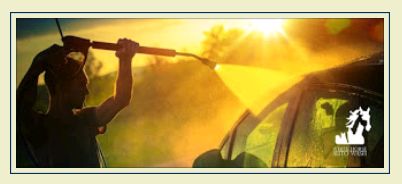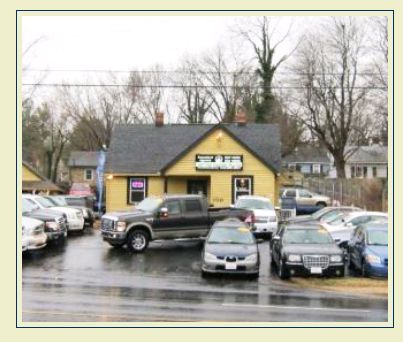White Horse Wash opposed the application of White Horse Auto to register the mark WHITE HORSE AUTO for automobile dealerships [AUTO disclaimed], claiming a likelihood of confusion with opposer's mark WHITE HORSE AUTO WASH for "automobile and vehicle washing; automobile and vehicle detailing" [AUTO WASH disclaimed]. The marks are nearly identical, but are the services related under Section 2(d)? White Horse Wash, LLC v. White Horse Auto, LLC, Opposition No. 91230312 (January 29, 2019) [not precedential] (Opinion by Judge Michael B. Adlin).

The Board noted that applicant's automobile dealership is located less than two miles from opposer's carwash, both located in Warrenton, Virginia. [How relevant is this fact, given that applicant is seeking a nationwide registration and it can be assumed that its services could or would be offered right next door to opposer's carwash? - ed.].
The Board found probative "a meaningful number of mistaken inquiries and assumptions about these two businesses that are two miles apart in a relatively small town, and use essentially the same marks in connection with automobile-related services." It observed, however, that certain testimony of opposer's owner and employees was of minimal probative value "in the absence of testimony from the third parties themselves 'as to whether they were confused and, if so, what caused their confusion'") (quoting Corp. Fitness Programs, Inc. v. Weider Health and Fitness, Inc., 2 UPQ2d 1682, 1691 (TTAB 1987), set aside on other grounds, 7 USPQ2d 1828 (TTAB 1988)).
Of course, the fact that the parties both provide automobile-related services is not enough to establish a relationship between the services for Section 2(d) purposes. However, the Board pointed out once again that because the parties' marks are "so highly similar," the degree of similarity between the services needed to support a finding of likelihood of confusion is reduced. Indeed, "[c]onsumers could very well perceive WHITE HORSE as an 'umbrella' mark or name for a group of local automobile-focused businesses each of which provides different goods or services." "In this case, customers who buy their used cars from Applicant's dealership may very well encounter or use one of Opposer's car washes."
The Board found that the channels of trade and classes of consumers "overlap to the significant extent that both parties by definition target their sales and advertising to motorists, car owners and car buyers."
Thus, they travel in primarily local trade channels, with Opposer's customers by definition having to bring their cars to Opposer's place of business for a wash, and most of Applicant's customers having to visit Applicant's place of business to negotiate for, or ultimately pick up, a car. In doing so, some are likely to encounter the other business with a similar name, simply by driving by it, or being exposed to, for example, its Warrenton focused marketing efforts, heightening the likelihood of confusion. This factor weighs in favor of finding a likelihood of confusion
The Board agreed with applicant that the likelihood of confusion is lessened because applicant's services are significantly more expensive than opposer's and thus "applicant's customers are likely to exercise much more care in purchasing than Opposer's customers." [But what about opposer's customers? - ed.] In any case, in view of the near identity of the marks "used in the same general field in local in local trade channels," even sophisticated purchasers are likely to be confused.

And so the Board sustained the opposition.
The content of this article is intended to provide a general guide to the subject matter. Specialist advice should be sought about your specific circumstances.
